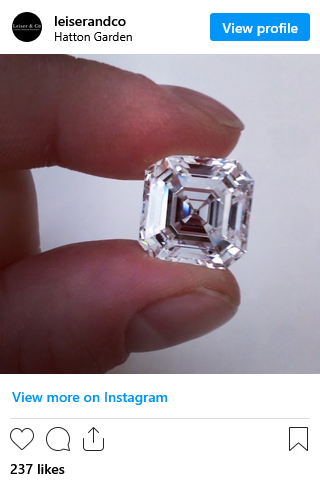When individuals consider selling diamonds—whether inherited, gifted, or purchased as an investment—they are faced with the decision of how to approach the transaction. The two primary avenues available are public sales and private sales. Each method has its own set of advantages, drawbacks, and unique opportunities depending on the seller’s goals, experience level, and desired level of discretion. Understanding the mechanisms behind each route is essential to making an informed decision, particularly given the significant value and market variability that diamonds represent. This article explores the nuances of public and private diamond sales, shedding light on the critical considerations that impact value, security, liquidity, and legal implications.

Understanding Public Diamond Sales
Public diamond sales refer to transactions that occur through widely accessible marketplaces or intermediaries that operate transparently and with open access. Examples include auction houses (such as Sotheby’s or Christie’s), online auction platforms like eBay, and large jewelry exchanges. These platforms provide exposure to a wide range of buyers, which can increase the likelihood of competitive bidding and higher final sale prices, especially for rare or high-quality stones. Public marketplaces often attract collectors, investors, and retail jewelers who are actively seeking to purchase diamonds, which can lead to more robust market dynamics.
However, public sales are not without their complications. Sellers may face substantial fees or commissions, particularly through major auction houses that can charge anywhere from 10% to 25% of the final sale price. Additionally, the listing process often includes appraisal requirements, authentication, and marketing preparation, all of which may incur costs. While public venues can enhance visibility, they also expose sellers to broader scrutiny, and in some cases, to risks of fraud or misrepresentation if proper protections are not in place. Timing is another factor, as auctions or online listings may take weeks or months to complete.
Pros of Public Diamond Sales
The primary advantage of public diamond sales is the enhanced exposure to a large pool of potential buyers, which can help achieve a fair or even premium market price. The competitive nature of public auctions may push prices higher, particularly for diamonds with rare features such as unique cuts, high carat weights, or historical significance. Another benefit is the third-party authentication and documentation that often accompany public sales, lending credibility and transparency to the transaction. Sellers may also benefit from professional marketing efforts provided by auction houses, which can highlight the diamond’s provenance or craftsmanship in appealing ways.
In addition, public sales create a formal structure for the transaction, offering some legal safeguards that may not be present in informal private sales. For example, auction houses typically include terms of sale that protect both parties and ensure that funds are secured before releasing the diamond to the buyer. Finally, sellers may find public platforms useful for setting reserve prices to avoid underselling, a safety net that prevents a diamond from selling below a certain value unless the reserve is met.
Cons of Public Diamond Sales
Despite the visibility and potential for competitive pricing, public sales can come with significant downsides. As previously mentioned, commissions and fees can sharply cut into profits, particularly if the diamond does not sell at a premium. The process is often time-consuming, and sellers may be required to part with their diamond for an extended evaluation or marketing period. Furthermore, the visibility that comes with public listings can compromise privacy, which may be a concern for individuals wishing to keep the sale discreet due to personal or security reasons.
Another drawback is the unpredictability of the market during the listing period. Public auctions, especially those held seasonally or quarterly, may not coincide with favorable market conditions. Additionally, there’s no guarantee that the diamond will sell, and relisting often involves restarting the process and incurring additional costs. In some cases, public auctions attract bargain hunters who may place low-ball bids, especially on platforms with less stringent buyer qualifications. This environment can sometimes depress prices for stones that do not stand out as exceptional or rare.
Understanding Private Diamond Sales
Private diamond sales encompass a range of discreet transactions carried out between individuals, through private jewelers, or via brokers who match buyers and sellers confidentially. This approach offers greater control over who participates in the sale, the conditions under which the transaction takes place, and the level of discretion afforded to both parties. Private sales are often used by individuals selling estate jewelry, collectors liquidating parts of their collection, or high-net-worth individuals seeking to avoid public exposure.
The major appeal of private diamond sales lies in the personal nature of the transaction. Sellers often receive more direct negotiation opportunities and may bypass hefty commissions typically associated with public platforms. Moreover, private sales can be tailored to the specific goals of the seller—whether that means achieving the highest possible price, executing the sale quickly, or ensuring complete confidentiality. Many private sales are conducted through trusted networks, minimizing risk and enhancing the integrity of the exchange.

Pros of Private Diamond Sales
One of the most compelling advantages of private diamond sales is the ability to maintain complete confidentiality. In contrast to public sales where diamonds are listed openly and often with detailed images and specifications, private transactions allow sellers to control the narrative, disclose only what is necessary, and limit the number of people who are aware of the sale. This level of privacy may be important for personal, financial, or security reasons, especially when dealing with high-value or sentimental items. Furthermore, private sales often avoid the bureaucracy and delays that can accompany public platforms, allowing transactions to be completed more swiftly and efficiently.
Another key benefit is the flexibility of pricing and negotiation. Since private transactions typically involve fewer intermediaries, there is greater room for direct discussions between buyer and seller. This can lead to more favorable outcomes, especially when both parties are motivated and knowledgeable. In some cases, sellers can command a higher net return because they are not required to pay auction house commissions or platform fees. Moreover, if the seller has access to a network of interested buyers—such as collectors or private jewelers—pricing can reflect the actual market demand rather than be influenced by an impersonal auction floor.
Cons of Private Diamond Sales
Despite their advantages, private sales also carry distinct disadvantages that must be carefully weighed. Chief among these is the challenge of valuation and market access. Without the broad reach of a public platform, sellers may find it difficult to attract serious, qualified buyers or to gauge the true market value of their diamond. Unlike auction houses, which provide formal appraisals and broad exposure, private sales depend heavily on the seller’s ability to network and identify trustworthy prospects. This increases the risk of selling below market value or encountering fraudulent buyers who exploit the lack of institutional oversight.
Additionally, legal protections in private sales are often minimal unless both parties formalize the agreement with contracts and independent verification services. Sellers may also face greater exposure to scams or disputes, especially in online or international private sales where regulatory frameworks vary. Security is another concern: arranging in-person meetings or shipping high-value items privately demands careful logistical planning to avoid theft or loss. Without escrow services or secure payment systems, sellers might face non-payment or chargebacks after delivery. These risks make private sales more suitable for experienced sellers who understand the necessary precautions and due diligence procedures.
Opportunities in Public Sales
While public sales may present more costs and complexity, they also open up strategic opportunities—particularly for sellers of rare or highly marketable diamonds. For example, colored diamonds, antique cuts, or stones with notable provenance often perform well at public auctions where buyers compete in real time. Sellers may also leverage the reputational power of major auction houses to increase buyer confidence, thereby enhancing both sale speed and price. In addition, public sales offer data transparency, as previous auction records and sales histories can inform pricing strategies and expectations.
Technological innovations are also enhancing public sale opportunities. Online platforms like Worthy, RapNet, and even high-end e-commerce jewelry retailers have created streamlined interfaces for listing, vetting, and selling diamonds with built-in escrow and verification processes. These platforms provide hybrid models that combine aspects of both public and private selling, offering security while retaining a broad audience. As the global diamond market becomes increasingly digital and data-driven, public sale channels are likely to become more accessible and sophisticated, allowing even first-time sellers to benefit from advanced valuation tools and targeted marketing strategies.
Opportunities in Private Sales
Private sales are also evolving in response to growing demand for personalization, discretion, and tailored service. High-net-worth individuals, estate managers, and specialized dealers are increasingly using private brokers and concierge jewelry services to manage large or sensitive transactions. These intermediaries provide customized sale strategies, including one-on-one introductions to buyers, detailed provenance documentation, and even nondisclosure agreements to protect both parties. Sellers who can afford to wait and network strategically often find that private sales yield superior outcomes—especially when dealing in unique or sentimental pieces.
Social media and digital communication platforms have also opened up new avenues for private sales. Instagram, WhatsApp, and private online forums now enable direct-to-buyer outreach, albeit with varying levels of risk. Meanwhile, diamond-selling apps and secure marketplaces are beginning to support peer-to-peer private sales with verification features, user ratings, and payment protection systems. Sellers who harness these tools effectively may find significant opportunities to retain more value, control their transaction terms, and target specific market segments. However, navigating this space requires a high level of vigilance, especially in terms of documentation, payment handling, and verification of buyer credentials.
Final Considerations and Choosing the Right Path
Deciding between public and private diamond sales ultimately hinges on the seller’s priorities. If the goal is to maximize exposure, achieve a competitive price, and take advantage of professional marketing and authentication services, then public platforms—despite their fees and formality—may offer the best path forward. On the other hand, if discretion, control, and personalized negotiation are of greater importance, then a private sale may yield better results, especially if the seller has access to a network of reputable buyers or brokers.
There is also a middle ground in hybrid approaches that combine the visibility of public marketplaces with the confidentiality and flexibility of private negotiation. For example, sellers may begin with a private broker but request public auction if the initial response is underwhelming. Alternatively, they may test-market a stone privately while preparing it for public sale, using the feedback to optimize pricing or presentation. In any case, sellers should seek professional advice from appraisers, legal experts, or industry professionals to understand their options fully and protect their interests throughout the transaction process.




